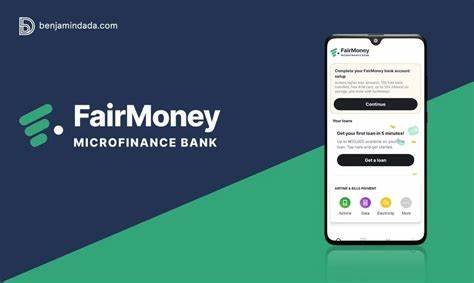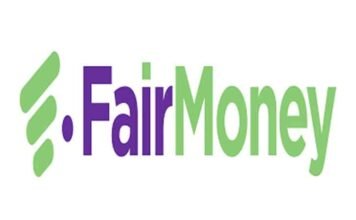In life, we all face moments when we need money urgently. Whether it’s for an unexpected expense, a business opportunity, or simply to manage daily needs, securing funds quickly can be a game-changer. In Nigeria, where opportunities and challenges intertwine, finding a way to get a quick loan without the stress is something many are searching for. But how can you get loan approval swiftly and without the endless paperwork or waiting periods?
This article is for you if you’re in need of financial support but want to avoid the hassle that often comes with loan applications. We’re here to break down everything you need to know: How to apply, who qualifies, when to apply, and why you need to ensure you borrow responsibly. Let’s take a deep dive into the easiest ways to secure quick loans in Nigeria.
How to Get Quick Loan Approval in Nigeria Without Stress
The process of getting a loan in Nigeria can often seem overwhelming, but it doesn’t have to be. If you know what steps to take and how to approach it, you can get quick loan approval with minimal stress. Here’s a clear guide to help you out:
1. Understand the Types of Loans Available
Before diving into the process, it’s important to know the types of loans available to you. Generally, loans fall into two categories:
- Personal Loans: These are unsecured loans that don’t require any collateral. They can be used for any purpose, such as medical bills, weddings, or personal expenses.
- Business Loans: For those looking to expand or start a business, these loans are designed to help entrepreneurs. They often require a solid business plan and proof of the ability to repay.
Knowing which loan suits your needs is the first step to a quick approval.
2. Research Lenders Who Offer Quick Approvals
In Nigeria, there are many financial institutions that offer loans, but the approval process can vary. Here are some of the best-known lenders offering quick approvals:
- Renmoney: They offer personal loans with quick approval. The process is 100% digital, and they provide up to ₦6 million.
- Branch International: An online lending platform that offers quick loans through an easy-to-use app. Loans can be approved in minutes.
- Carbon (formerly Paylater): A popular app in Nigeria for getting instant loans without collateral, with loan amounts ranging from ₦1,500 to ₦500,000.
- Finture: Another app that provides loans without any paperwork. It’s simple and fast.
3. Who Qualifies for a Quick Loan in Nigeria?
Qualification criteria can vary from lender to lender, but there are some common factors that most institutions will consider:
- Age: Typically, you must be at least 18 years old to qualify for a loan.
- Income: Your income level will be considered. While some lenders offer loans to those with a minimum income, others may require proof of a steady income.
- Credit Score: Some lenders will check your credit score, so it’s important to have a good credit history. But for some mobile lending apps, a good credit score may not be a requirement.
- Bank Account: Most lenders will require you to have an active bank account to transfer the loan amount.
4. When Should You Apply for a Loan?
It’s important to plan when to apply for a loan. Here’s when it’s best to apply:
- Urgent Needs: When you need money for an emergency situation, such as medical bills or other pressing personal needs, it’s a good time to apply.
- Business Investment: If you’ve identified a business opportunity or need funds to grow your business, applying for a loan at the right time can help you seize the moment.
- Salary Gaps: If you’re facing a gap between your salary payments and need money to cover short-term expenses, applying for a loan could be the solution.
5. Plan for Repayment
The key to avoiding the stress of loans is planning for repayment. Here’s how to plan:
- Understand Your Loan Terms: Before accepting any loan offer, make sure you understand the repayment schedule and interest rates.
- Create a Budget: Align your loan repayment with your monthly budget. Ensure that you can make the payments without straining your finances.
- Set Up Automatic Payments: Many lenders offer the option to set up automatic payments, ensuring that you never miss a due date.
Loan Providers in Nigeria: Loan Amount, Interest Rates, Eligibility, and Repayment Plans
| Loan Provider | Loan Amount | Interest Rate | Eligibility | Repayment Plan |
|---|---|---|---|---|
| Renmoney | ₦100,000 – ₦6,000,000 | 2.5% – 5% monthly | Age 22-59, Proof of income | 6 – 24 months |
| Branch | ₦1,500 – ₦200,000 | 14% – 28% annually | Age 18+, Bank account, Active phone number | 4 – 12 weeks |
| Carbon | ₦1,500 – ₦500,000 | 5% – 10% monthly | Age 18+, Bank account | 1 – 6 months |
| Finture | ₦5,000 – ₦300,000 | 10% monthly | Age 18+, Mobile app registration | 7 – 30 days |
Why You Need Money: Planning for Your Loan
While the reasons people take loans vary, it’s crucial to understand why you need the loan. Whether it’s for an emergency or a planned project, having a clear purpose will help you stay focused on repaying the loan without getting overwhelmed. Here are some reasons you might need a quick loan:
- Medical Emergencies: When unexpected health expenses arise.
- Business Needs: To expand or start a business.
- Educational Fees: To pay school fees or fund personal education.
- Home Renovation: When you need to renovate your house or pay rent.
Now that you know how to get quick loan approval in Nigeria, it’s important to remember that loans should be taken responsibly. While the process may be easy and fast, borrowing beyond your capacity can lead to financial strain. Always plan your repayment ahead, borrow for the right reasons, and ensure that you are borrowing within your means.
Advice from the FINANCE.Edujects:
“On no account should you take beyond what you can repay. This is an opportunity, but don’t over-use it just because you have access to it freely. And don’t take beyond the capacity of your income expectations. Endeavor to use the money for its purpose. Learn from the business side of the Igbos. Igbos would never take borrowed money to do other things rather than its intended purpose.”






